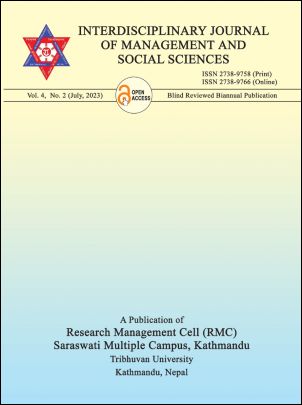Libertinism and the Blurring of Private–Public
DOI:
https://doi.org/10.3126/ijmss.v4i2.57206Keywords:
libertine ethos, morality, private-public, restoration plays, sexualityAbstract
The distinction between private and public has been existed in debates not only between liberals and communitarians regarding the commercial or common interest on economic issues, but also among members of the same family, community, class, circle, group, institution or party, and is made sharper more in essence by social norms and ethics relating the private as aberrant, and could thus, be injurious to the mass. Such a dichotomy made between the private as purely personal instinct-driven and the public as larger and society-driven mystifies the most common libertine character that exists more implicitly among all individuals, which the libertine literature attempts to expose by bringing into practice the private pleasure to the public via, among many other genres, plays and theatric performances. This paper attempts to show how the libertine plays have been successful in challenging the-then emerging bourgeoisie sexual-morality by blurring the public and private acts, thereby expanding the possible sexual roles and identities available to late seventeenth century men and women.

